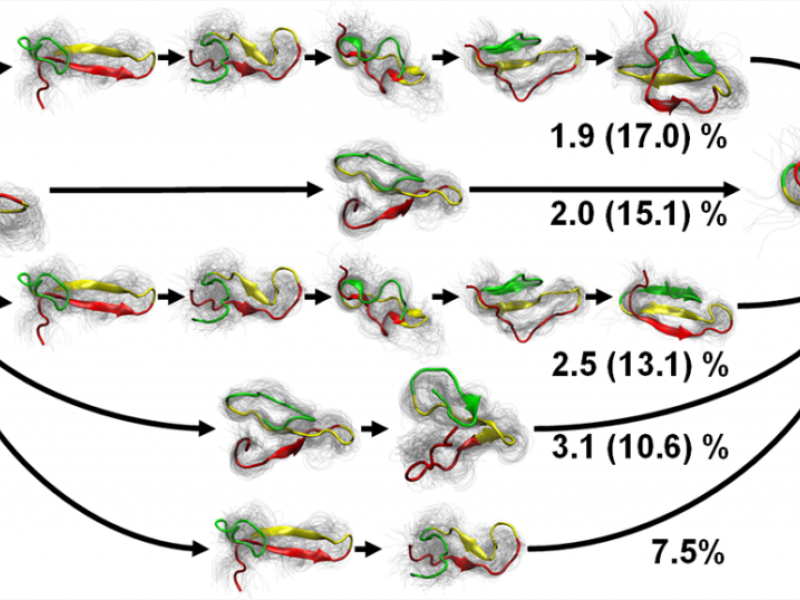The dynamics of biomolecules show an inherent multiscale behaviour with cascades of timescales and strong interaction between them. Molecular dynamics (MD) simulations allow for analysis and understanding of this dynamical behaviour. However realistic simulations on timescales beyond milliseconds are still infeasible even on the most powerful computers, which renders the MD-based analysis of many important equilibrium processes related to biological function impossible. Driven by the recent progress in experimental techniques to manipulate single molecules, numerical nonequilibrium methods that attempt to bridge the timescale gap between the fastest random oscillations and the rare events that are related to the slowest function-related processes have gained enormous popularity. This project aims at exploiting ideas from stochastic control, in order to devise novel efficient importance sampling strategies based on optimal controls that speed up the sampling of the relevant rare events while giving statistical estimators with small variance and good convergence properties, beyond the asymptotic regime of large deviations theory.
